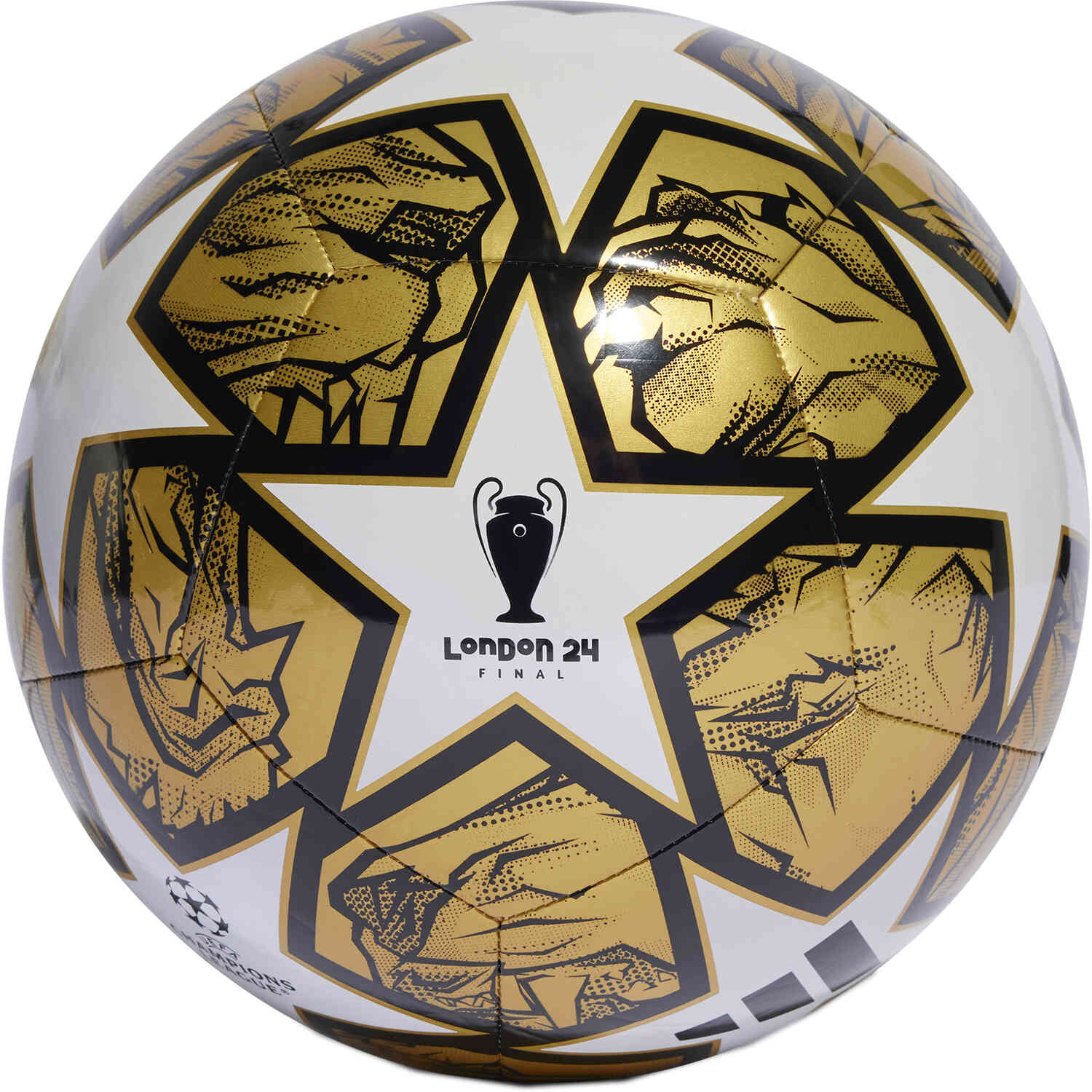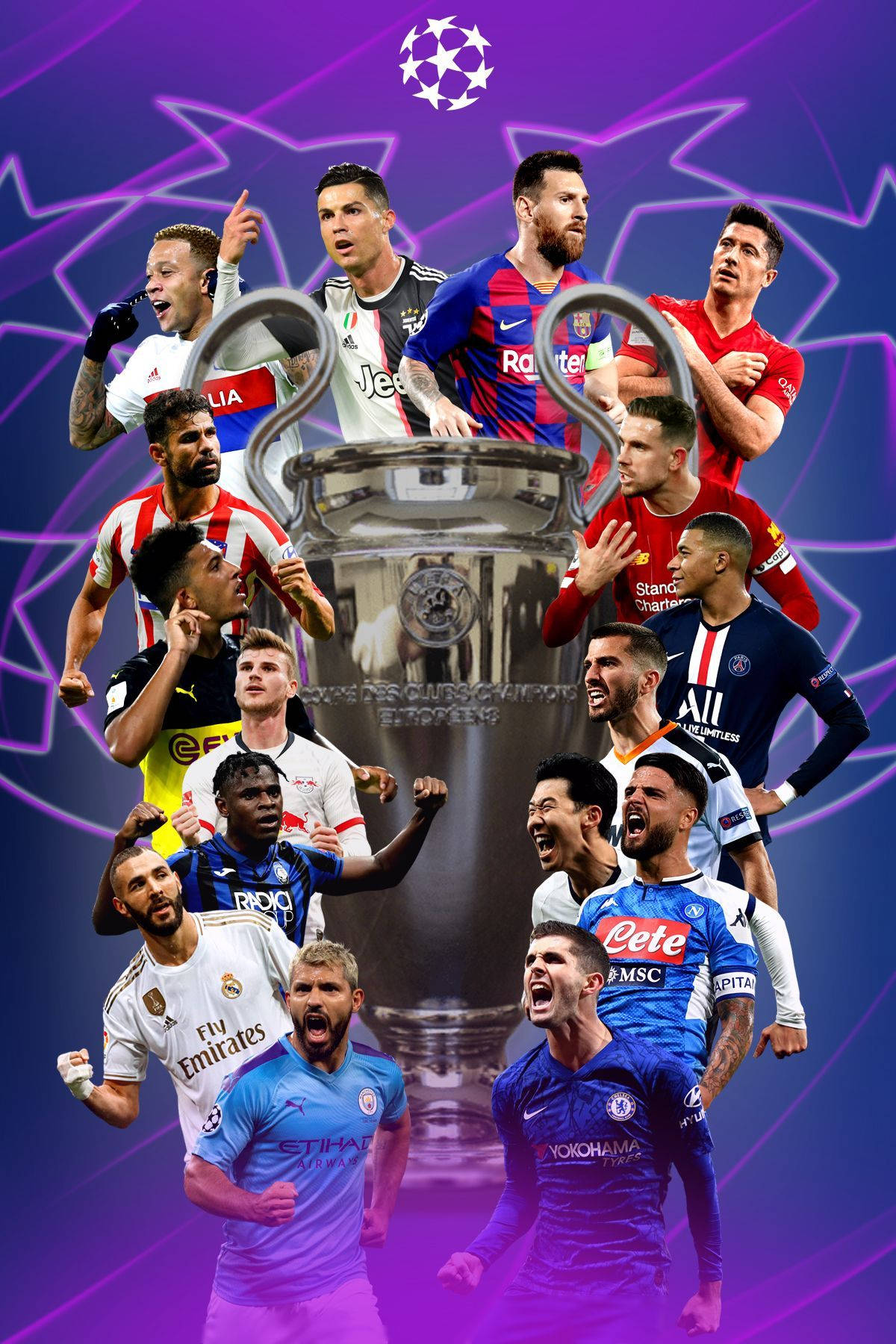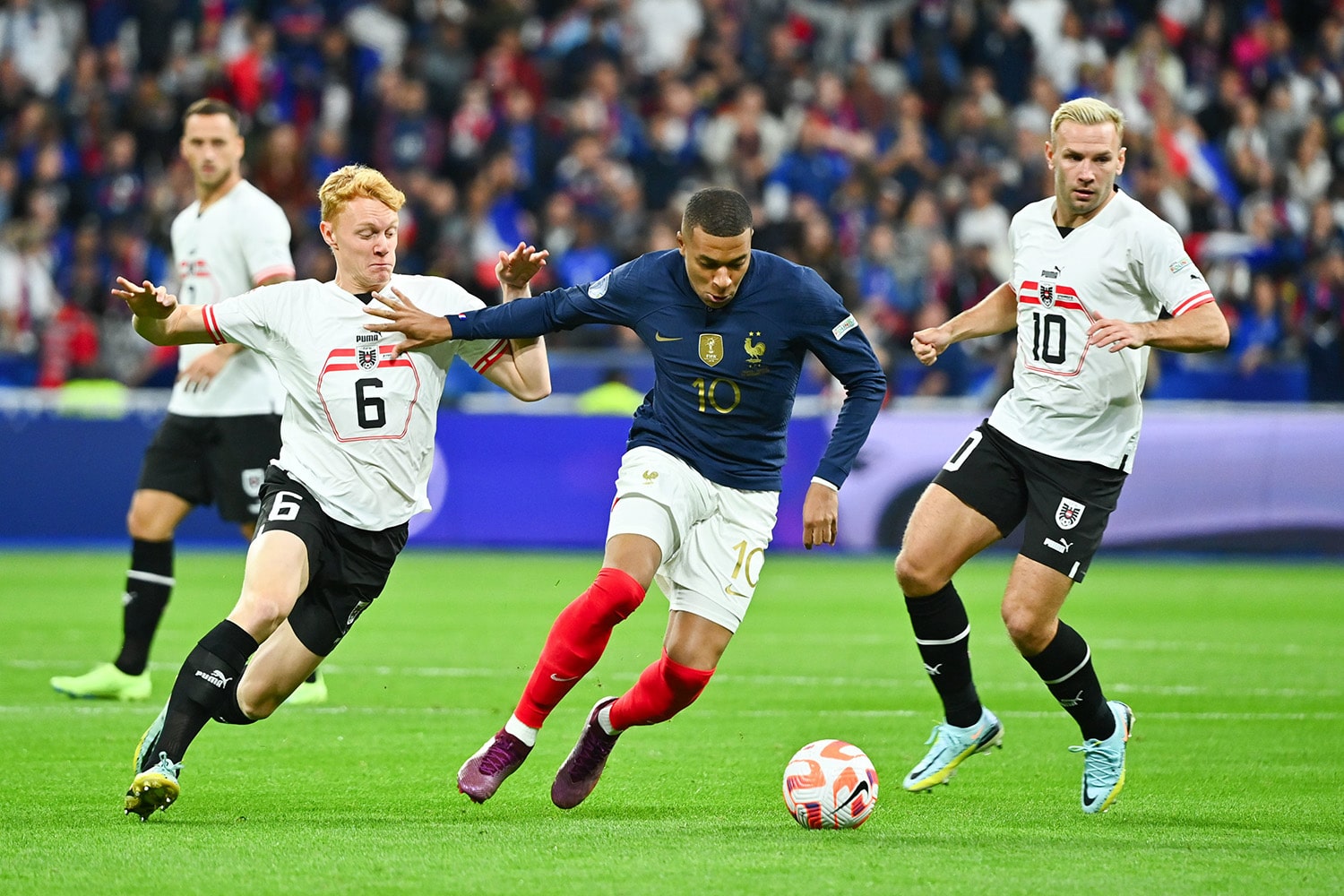
Kings of Europe: A Comparative Analysis of Club Success in the UEFA Champions League
The UEFA Champions League, European club football’s most prestigious competition, is a crucible where legends are forged and dynasties are built. Since its inception as the European Champion Clubs’ Cup in 1955, and particularly since its rebranding in 1992, the tournament has witnessed a fascinating tapestry of triumphs, each woven with unique threads of tactical genius, financial might, player brilliance, and sheer determination. Comparing the success of various clubs in this elite arena is not merely about counting trophies, but about understanding the diverse philosophies, eras, and challenges that shaped their journeys to continental supremacy.
Real Madrid: The Unrivaled Architects of Hegemony
No club embodies Champions League success quite like Real Madrid. With a staggering 14 titles, including the first five editions from 1956 to 1960 and an unprecedented three consecutive titles in the modern era (2016-2018), Los Blancos stand as the undisputed kings of Europe. Their success is built on a unique blend of factors. Historically, the visionary leadership of Santiago Bernabéu and the iconic brilliance of Alfredo Di Stéfano laid the foundation for an unshakeable winning culture. In the modern era, Real Madrid’s "Galácticos" policy, though often criticized for its short-term focus, has consistently brought the world’s best talent to the Bernabéu.
However, their recent dominance under Zinedine Zidane showcased more than just individual stars. It revealed an innate ability to perform under pressure, a tactical flexibility that adapted to different opponents, and a deep-seated belief in their own destiny in this particular competition. Their financial muscle allows them to acquire top-tier players, but it’s their institutional focus on the Champions League, often prioritizing it over domestic competitions, that truly sets them apart. Real Madrid’s success is a testament to the power of tradition, a winning mentality ingrained in the club’s DNA, and the magnetic pull of the "undécima" (11th) and beyond.
AC Milan: Tactical Revolutionaries and Defensive Fortresses
In stark contrast to Real Madrid’s sometimes flamboyant approach, AC Milan’s periods of dominance were often characterized by tactical innovation and defensive solidity. The late 1980s and early 1990s under Arrigo Sacchi and Fabio Capello saw Milan achieve three European Cups in five seasons (1989, 1990, 1994). Sacchi’s revolutionary zonal marking system, high press, and an almost perfect understanding between his Dutch trio of Gullit, Van Basten, and Rijkaard, alongside an impenetrable Italian defence featuring Maldini and Baresi, changed the face of European football.
Capello continued this legacy, leading arguably one of the greatest club teams of all time to a 4-0 demolition of Barcelona in the 1994 final. Their success was built on rigorous training, tactical discipline, and a collective ethos that prioritized the team over individual brilliance. While they also boasted superstars, their triumphs were more a reflection of meticulous preparation and a coherent team structure. Later, under Carlo Ancelotti in the 2000s, Milan added two more titles (2003, 2007), showcasing adaptability with a more fluid, possession-based style, but still retaining that core Italian defensive steel.
FC Barcelona: The Beautiful Game Perfected
FC Barcelona’s most celebrated era of Champions League success is synonymous with the "tiki-taka" philosophy and the unparalleled genius of Lionel Messi. While Johan Cruyff’s "Dream Team" secured their first European Cup in 1992, it was Pep Guardiola’s reign from 2008 to 2012 that truly captivated the footballing world. Winning two Champions League titles in three seasons (2009, 2011), Barcelona played a brand of football that was both aesthetically pleasing and ruthlessly effective.
Their success was rooted in La Masia, their famed youth academy, which produced a golden generation of players like Messi, Xavi, and Iniesta, who had an innate understanding of the club’s possession-based, attacking philosophy. Guardiola’s tactical brilliance refined this system, emphasizing relentless pressing, intricate passing patterns, and positional interchange. Barcelona’s dominance was a triumph of a unique footballing identity, where individual talent was harnessed within a meticulously structured team framework. Their later title in 2015, featuring the formidable MSN (Messi, Suárez, Neymar) trio, showed a slight evolution but maintained the core principles of attacking football.
Bayern Munich: German Efficiency and Enduring Power
Bayern Munich represents a model of consistent, long-term success, built on financial prudence, strong domestic foundations, and a relentless pursuit of excellence. Their six Champions League titles span several decades, from the Franz Beckenbauer-led teams of the 1970s (three consecutive titles from 1974-1976) to their modern triumphs in 2001, 2013, and 2020.
Unlike some rivals who rely heavily on external investment, Bayern operates on a largely self-sufficient model, investing wisely in talent, maintaining a core of German national team players, and fostering a strong club culture. Their success is often characterized by a powerful, physically dominant style of play, coupled with tactical discipline and a "never-say-die" attitude. They have consistently adapted to different eras, showcasing both fluid attacking football and resilient defensive performances. Bayern’s strength lies in their institutional stability, their ability to seamlessly transition between managers, and their unwavering ambition to be among Europe’s elite.
Liverpool: European Heritage and Modern Resurgence
Liverpool’s Champions League journey is a story of deep-rooted European heritage combined with a spectacular modern resurgence. The Reds dominated the competition in the late 1970s and early 1980s, securing four titles between 1977 and 1984 under managers like Bob Paisley and Joe Fagan. Their success was built on a strong team ethic, a relentless pressing style (long before it became fashionable), and the electric atmosphere of Anfield.
After a period in the wilderness, Liverpool recaptured European glory in dramatic fashion in 2005 under Rafa Benítez, overcoming AC Milan from 3-0 down in Istanbul. This improbable victory highlighted the club’s enduring spirit and the passionate connection with its fanbase. The most recent era under Jürgen Klopp has seen Liverpool return to the summit, winning the 2019 title. Klopp’s "Gegenpressing" philosophy, combined with shrewd recruitment and a formidable front three, re-established Liverpool as one of Europe’s most feared teams. Their success is a blend of historical legacy, an incredibly supportive fanbase, and a clear, high-intensity tactical identity.
Manchester United: The Ferguson Era’s Enduring Legacy
Manchester United’s Champions League success is almost entirely synonymous with the extraordinary reign of Sir Alex Ferguson. While they boast three titles (1968, 1999, 2008), it’s the sheer longevity of their competitiveness under Ferguson that stands out. From the inaugural Premier League season in 1992-93 until his retirement in 2013, United were a constant fixture in the latter stages of the Champions League, reaching four finals and numerous semi-finals.
Ferguson’s genius lay in his unparalleled man-management, his ability to constantly rebuild teams, and his tactical adaptability. He fostered an unwavering winning mentality, often extracting more from his players than seemed possible. The 1999 treble-winning side, culminating in the dramatic comeback against Bayern Munich, epitomized the club’s never-give-up attitude. Unlike clubs that focused on a single tactical philosophy, United under Ferguson were chameleons, capable of winning ugly, playing scintillating football, or grinding out results. Their success was a testament to the power of a singular, visionary leader and the development of homegrown talent alongside world-class signings.
Other Notable Contenders and Emerging Powers
Beyond these consistent giants, several other clubs have left their mark:
- Ajax: Pioneers of "Total Football" in the 1970s with three consecutive titles, and later under Louis van Gaal in 1995, showcasing the power of youth development and tactical innovation. Their success often comes in cycles, relying on producing generational talent.
- Inter Milan: While not as consistently dominant, Inter’s treble-winning season in 2010 under José Mourinho was a masterclass in tactical pragmatism and defensive organization, proving that even against more glamorous opponents, a perfectly executed game plan can prevail.
- Juventus: Despite reaching numerous finals (most notably in the 1990s and 2010s), Juventus have often been the bridesmaids, winning only two titles (1985, 1996). Their consistent domestic dominance has rarely translated into similar European glory, often falling short against more expansive or clinical opponents.
- Chelsea: With two unexpected triumphs in 2012 and 2021, Chelsea represent the impact of significant financial investment combined with astute managerial appointments and tactical flexibility, often defying expectations through resilience and moments of individual brilliance.
- Paris Saint-Germain and Manchester City: These clubs represent the new wave of financial power, backed by state-level investment. While they have dominated their domestic leagues and reached finals, they are still striving to build the multi-decade Champions League legacy that characterizes the traditional giants. Their challenge is to translate vast financial resources into the intangible qualities of winning culture and consistent European pedigree.
Conclusion: A Tapestry of Triumph
Comparing Champions League success reveals that there is no single formula for conquering Europe. Real Madrid showcases the power of tradition and star acquisition, while Barcelona highlights the triumph of a unique philosophy and youth development. AC Milan demonstrated the impact of tactical revolution and defensive mastery, and Bayern Munich stands for sustainable, institutional excellence. Liverpool embodies the power of heritage and passionate support, and Manchester United’s success was largely the narrative of one iconic manager.
Ultimately, the UEFA Champions League is a complex ecosystem where financial power, tactical genius, individual brilliance, unwavering team spirit, and even a touch of luck all converge. Each champion leaves an indelible mark, contributing to the rich tapestry of European football history and ensuring that the pursuit of continental glory remains the ultimate ambition for clubs across the continent. The diversity of their paths to the summit is what makes the Champions League the most compelling club competition in the world.



